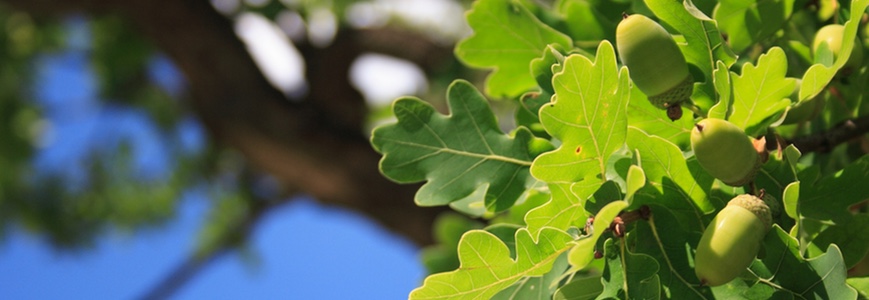THE LANDSCAPING SOLUTIONS BLOG
Welcome to our Blog. Inspiration, updates and industry trends from the team at Landscaping Solutions.
FRACKERS SET THEIR SIGHTS ON SHERWOOD FOREST

If you follow us on twitter you may have seen we recently shared information regarding the 38 Degrees campaign to keep Sherwood Forest free from fracking.
One of the world's largest chemical companies Ineos, are leading the charge in the search for shale gas under the ancient woodland that served as the legendary home of Robin Hood.
Ineos, who recently relocated their headquarters to the UK have been in talks with the Forestry commission regarding Sherwood Forests potential for shale gas exploration.
According to Friends of the Earth, documents obtained under the Freedom of Information Act reveal Ineos now have the relevant licences to allow them to conduct a number of seismic surveys in the area.
The surveys would determine whether or not shale gas is present in rocks beneath the forest and if so would result in fracking work commencing.
Hydraulic fracturing, or fracking is the process of drilling down into the earth and injecting high pressure water, sand and chemicals into subterranean rock to release gas trapped inside.
The reason fracking is so controversial is because its not without its environmental concerns. Chemicals used in the process can escape and contaminate groundwater around the fracking site.
Fracking also requires vast amounts of water, which has to be transported to the sites, at significant environmental cost.
In 2011, energy company Cuadrilla had to quickly suspend fracking operations in Lancashire, after two earthquakes measuring 1.5 and 2.2 struck the area. A study conducted after the incident concluded it was "highly probable" the fracking operations had triggered the earthquakes.
Understandably a number of prominent campaign groups such as 38 Degrees and Friends of the Earth are outraged by the proposal and are calling on the government to block any possible surveys or future fracking.
Putting aside for a moment the historical importance of the woodland, the forest itself is also home to countless wildlife, including rare bats and other protected species.
To avoid an incident like the one seen in Lancashire, 38 Degrees plan to battle the Sherwood Forest bid by gathering a 500,000 signature petition and submitting it to the Forestry Commission. The hope is that a public outcry of this magnitude will bring a stop to the Ineos proposal, protecting the wildlife and preserving the forest for future generations.
Further information regarding the 38 Degrees campaign and petition is available via their website.
BEES IN CRISIS

Its hard to believe that something so tiny could play such an important environmental role but the fact of the matter is bees are essential to our environment and our economy.
Bees, along with other pollinators such as butterflies, moths, wasps and beetles play a vital role in pollinating the vast majority of our fruit and vegetables. Without them it would cost UK farmers somewhere in the region of £1.8 billion a year to pollinate the crops themselves.
Take bees out of the equation and the environment and our economy is quickly in trouble.
Over the past few years a number of factors such as the use of pesticides, climate change and the loss of natural habitats have contributed to a serious decline in our bee population.
Since 1930 the UK has lost 97% of its flower-rich meadows with hedgerows and chalk grassland also being depleted over the same period. Our wonderful British weather certainly hasn’t helped with a long run of wet summers making the job of finding pollen even harder.
There was at one point 27 different species of bees in the UK, 3 of those species are now extinct and many others including the wild honey bee are dangerously close to extinction.
The numbers do not look good but its not all bad news. A number of organisation such as Friends of the Earth are working to create bee-friendly spaces across the country, as well as lobbying for tougher regulation on the use of pesticides.
Aside from the organisations, replenishing the bees natural habitat is something we can all get involved in. Incorporating more wildflowers in to our gardens immediately provides food and shelter for the bee population and slowly begins to reconnect their natural habitats.
Further information regarding Friends of the Earth and their work is available via their website.